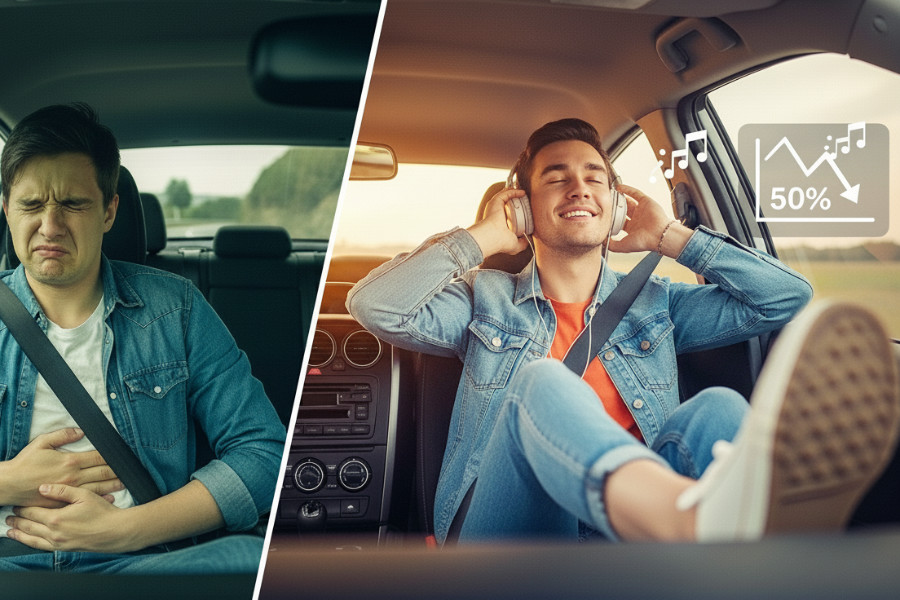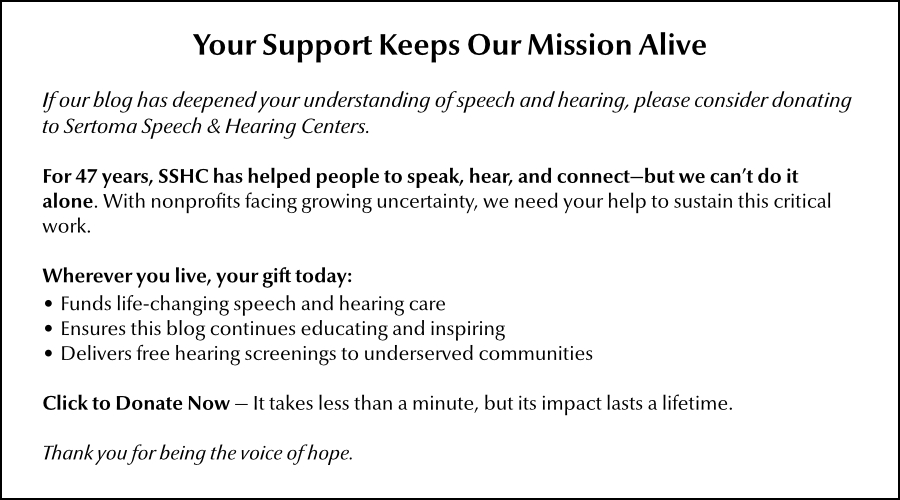If you're feeling queasy on your next road trip, scientists found the right playlist might be better than Dramamine. A new study finds joyful music can reduce motion sickness by over half, while sad songs make it worse.
Why it matters
This research offers a simple, side-effect-free alternative to motion-sickness drugs that cause drowsiness. Instead of pills, travelers could rely on carefully chosen tunes to feel better faster.
By the numbers: Chinese scientists tested 30 motion sickness-prone volunteers using a driving simulator and found striking differences in recovery rates:
-
Joyful music: 57.3% reduction in sickness
-
Soft music: 56.7% reduction
-
Passionate music: 48.3% reduction
-
No intervention resulted in a 43.3% natural recovery
-
Sad music: 40% reduction (worse than nothing)

How it works
Scientists monitored participants' brain activity using EEG caps and discovered that motion sickness changes activity in the occipital lobe. When people felt sick, this brain region showed less complex activity patterns. As participants recovered, their brain activity returned to normal.
The intrigue
The emotional tone of the music triggers different biological responses. Researchers theorize that soft music helps by relaxing tension that worsens motion sickness, while upbeat songs distract the brain by activating reward systems. Sad music increases negative emotions and discomfort.
Yes, but
Dr. Qizong Yue from Southwest University acknowledges the study's main limitation of only 30 participants, which limits statistical precision. The team used a driving simulator instead of real-world conditions, which could affect brain response.
The big picture
Millions of travelers worldwide are affected by motion sickness, and current medications often cause unwanted side effects like drowsiness. Music represents "a non-invasive, low-cost, and personalized intervention strategy" that could work across different travel types.
Zoom out: The findings likely extend beyond car travel. Since the motion sickness frameworks apply across vehicles, the same musical interventions could help with seasickness and airsickness.
“Based on our conclusions, individuals experiencing motion sickness symptoms during travel can listen to cheerful or gentle music to achieve relief. The primary theoretical frameworks for motion sickness genesis apply broadly to sickness induced by various vehicles. Therefore, the findings of this study likely extend to motion sickness experienced during air or sea travel.” —Dr. Qizong Yue, Southwest University, China
Next up
Future research will require larger sample sizes and real-world testing to validate these results. Scientists want to explore how personal musical preferences influence outcomes and investigate different travel sickness variations.
The bottom line
Next time you're planning a potentially nauseating journey, consider a playlist of cheerful or gentle music. This strategy could help you arrive feeling better without the drowsiness of motion-sickness medications.


